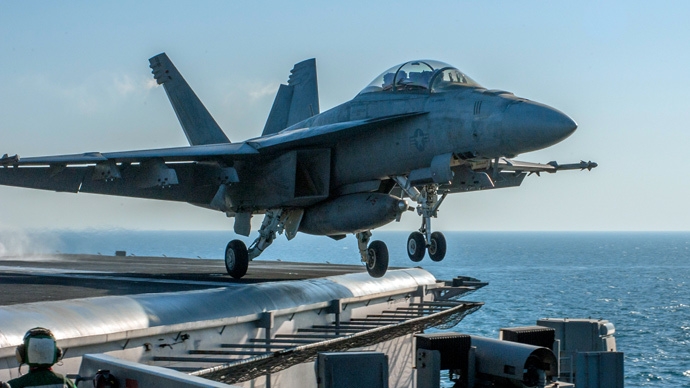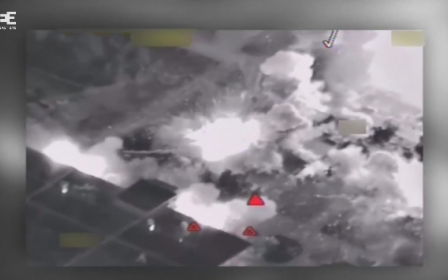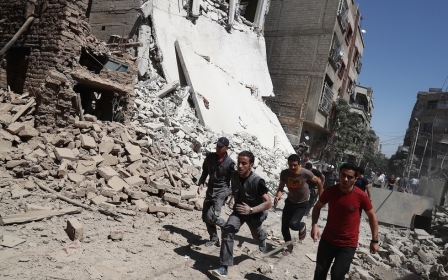US admits recent Syria raids may have killed civilians

The US has admitted that its air strikes over Syria "may have resulted in civilian casualties" over the past week.
The US military said on Tuesday that three strikes against Islamic State (IS) targets may have caused what it called civilian casualties, without specifying the numbers of possible deaths or injuries.
US Central Command, which is in charge of the coalition's bombing operations over Syria and Iraq, said in a statement that strikes near Deir Ezzor on 7 September, near Raqqa on 10 September, and near al-Shahada on 12 September 12, "may" have resulted in civilian casualties.
The command has previously said it is "aware" of reports of civilian casualties from its air strikes and launches investigations, but rarely admits that its military activity may have caused civilian deaths or injuries before completing its investigations.
The statement said that the strike near Deir Ezzor in eastern Syria occurred when a civilian vehicle strayed into the target area after the missiles had been fired.
According to the statement, a similar incident near al-Shahada saw a non-military vehicle hit by a US air strike.
The US has been leading a military coalition against IS in Iraq since August 2014, and in Syria since September 2014.
Since the start of its campaign in Syria and Iraq, the US has acknowledged that its strikes have killed 41 civilians.
However, researchers from the campaign group Airwars, which investigates claims of civilian deaths from US and Russian air strikes, say the figure is probably far higher, up to 1,500.
New MEE newsletter: Jerusalem Dispatch
Sign up to get the latest insights and analysis on Israel-Palestine, alongside Turkey Unpacked and other MEE newsletters
Middle East Eye delivers independent and unrivalled coverage and analysis of the Middle East, North Africa and beyond. To learn more about republishing this content and the associated fees, please fill out this form. More about MEE can be found here.




